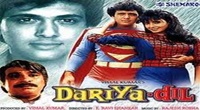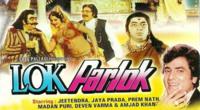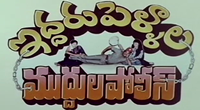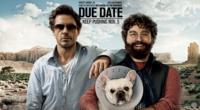Summer of '42 is a 1971 American coming-of-age comedy-drama film based on the memoirs of screenwriter Herman Raucher. It tells the story of how Raucher, in his early teens on his 1942 summer vacation on Nantucket Island (off the coast of Cape Cod), embarks on a one-sided romance with a young woman, Dorothy, whose husband has gone off to fight in World War II.
| Summer of '42 | |
|---|---|
Theatrical release poster | |
| Directed by | Robert Mulligan |
| Produced by | Richard A. Roth |
| Written by | Herman Raucher |
| Starring | Jennifer O'Neill Gary Grimes Jerry Houser Oliver Conant |
| Narrated by | Robert Mulligan |
| Music by | Michel Legrand |
| Cinematography | Robert Surtees A.S.C. |
| Edited by | Folmar Blangsted A.C.E. |
Production company | A Robert Mulligan–Richard A. Roth production |
| Distributed by | Warner Bros. Pictures |
Release date |
|
Running time | 104 minutes |
| Country | United States |
| Language | English |
| Budget | $1 million |
| Box office | $32,063,634 |
The film was directed by Robert Mulligan, and starred Gary Grimes as Hermie, Jerry Houser as his best friend Oscy, Oliver Conant as their nerdy young friend Benjie, Jennifer O'Neill as the mysterious woman with whom Hermie becomes involved, and Katherine Allentuck and Christopher Norris as a pair of girls whom Hermie and Oscy attempt to seduce. Mulligan also has an uncredited role as the voice of the adult Hermie. Maureen Stapleton (Allentuck's mother) also appears in a small, uncredited voice role (calling after Hermie as he leaves the house in an early scene, and after he enters his room in a later scene).
Raucher's novelization of his screenplay of the same name was released prior to the film's release and became a runaway bestseller, to the point that audiences lost sight of the fact that the book was based on the film and not vice versa. Though a pop culture phenomenon in the first half of the 1970s, the novelization went out of print and slipped into obscurity throughout the next two decades until a Broadway adaptation in 2001 brought it back into the public light and prompted Barnes & Noble to acquire the publishing rights to the book.
Screenplay
The film opens with a series of still photographs appearing over melancholic music, representing the abstract memories of the unseen Herman Raucher, now a middle-aged man. Raucher recalls the summer he spent on the island in 1942. The film flashes back to a day that then 15-year-old "Hermie" and his friends – jock Oscy and introverted nerd Benjie – spent playing on the beach. They spot a young soldier carrying his new bride into a house on the beach, and are struck by her beauty, especially Hermie, who is unable to get her out of his mind.
They continue spending afternoons on the beach where, in the midst of scantily-clad teenage girls, their thoughts invariably turn to sex. All of them are virgins: Oscy is obsessed with the act of sex, while Hermie finds himself developing romantic interest in the bride, whose husband he spots leaving the island on a water taxi one morning. Later that day, Hermie finds her trying to carry bags of groceries by herself, and helps get them back to her house. They strike up a friendship and he agrees to return to help her with chores.
Meanwhile, Oscy and Hermie, thanks to a sex manual discovered by Benjie, become convinced they know everything necessary to lose their virginity. Led by Oscy, they test this by going to the cinema and picking-up a trio of high-school girls. Oscy stakes out the most attractive one, Miriam, "giving" Hermie her less attractive friend, Aggie, and leaving Benjie with Gloria, a heavyset girl with braces. Frightened by the immediacy of sex, Benjie runs off, and is not seen by Hermie or Oscy again that night. Hermie and Oscy spend the entirety of the evening's film attempting to "put the moves" on Miriam and Aggie. Oscy pursues Miriam, eventually making out with her during the movie, and later learns her ways are well-known on the island. Hermie finds himself succeeding with Aggie, who allows him to grope what he thinks is her breast; Oscy later points out Hermie was fondling her arm.
The next morning, Hermie helps the bride move boxes into her attic and she thanks him by giving him a kiss on the forehead. Later, in preparation for a marshmallow roast on the beach with Aggie and Miriam, Hermie goes to the local drugstore. In a painfully humorous sequence, he builds up the nerve to ask the druggist (Lou Frizzell) for condoms.
That night, Hermie roasts marshmallows with Aggie while Oscy succeeds in having sex with Miriam between the dunes. He is so successful he sneaks over to Hermie and Aggie to ask for more condoms. Confused as to what's happening, Aggie follows Oscy back, where she sees him having sex with Miriam and runs home, upset.
The next day, Hermie comes across the bride sitting outside her house, writing to her husband. Hermie offers to keep her company that night and she says she looks forward to seeing him, revealing her name is Dorothy. An elated Hermie goes home and puts on a suit, dress shirt and heads back to Dorothy's house, running into Oscy on the way; Oscy relates that Miriam's appendix burst and she's been rushed to the mainland. Hermie, convinced he is at the brink of adulthood because of his relationship with Dorothy, brushes Oscy off.
He heads to her house, which is eerily quiet. Going in, he discovers a bottle of whiskey, several cigarette butts, and a telegram from the government. Dorothy's husband is dead, his plane shot down over France. Dorothy comes out of her bedroom, crying, and Hermie tells her "I'm sorry." The sense of empathy triggers her to channel to Hermie some of her loneliness. She turns on the record player and invites Hermie to dance with her. They kiss and embrace, tears on both their faces. Without speaking, and to the sound only of the waves, they move to the bedroom, where she draws him into bed and gently makes love with him. Afterward, withdrawing again into her world of hurt, Dorothy retires to the porch, leaving Hermie alone in her bedroom. He approaches her on the porch, where she can only quietly say "Good night, Hermie." He leaves, his last image of Dorothy being of her leaning against the railing, as she smokes a cigarette and stares into the night sky.
At dawn Hermie meets Oscy and the two share a moment of reconciliation, with Oscy informing Hermie that Miriam will recover. Oscy, in an uncharacteristic act of sensitivity, lets Hermie be by himself, departing with the words, "Sometimes life is one big pain in the ass."
Trying to sort out what has happened, Hermie goes back to Dorothy's house. Dorothy has fled the island in the night and an envelope is tacked to the front door with Hermie's name on it. Inside is a note from Dorothy, saying she hopes he understands she must go back home as there is much to do. She assures Hermie she will never forget him, and he will find his way of remembering what happened that night. Her note closes with the hope that Hermie may be spared the senseless tragedies of life.
In the final scene, Hermie, suddenly approaching manhood, is seen looking at Dorothy's old house and the ocean from a distance before he turns to join his friends. To bittersweet music, the adult Raucher sadly recounts that he has never seen Dorothy again or learned what became of her.
|
|
Character names are not indicated in on-screen credits.
Herman Raucher wrote the film script in the 1950s during his tenure as a television writer, but "couldn't give it away." In the 1960s, he met Robert Mulligan, best known for directing To Kill a Mockingbird. Raucher showed Mulligan the script, and Mulligan took it to Warner Bros., where Mulligan argued the film could be shot for the relatively low price of $1 million, and Warner approved it. They had so little faith in the film becoming a box-office success, though, they shied from paying Raucher outright for the script, instead promising him ten percent of the gross.
When casting for the role of Dorothy, Warner Bros. declined to audition any actresses younger than the age of 30; Jennifer O'Neill's agent, who had developed a fondness for the script, convinced the studio to audition his client, who was only 22 at the time. O'Neill auditioned for the role, albeit hesitantly, not wanting to perform any nude scenes. O'Neill got the role and Mulligan agreed to find a way to make the film work without blatant nudity.
Nantucket Island was too far modernized in 1970 to be convincingly transformed to resemble an early 1940s resort, so production was taken to Mendocino, California, on the West Coast of the US. Shooting took place over eight weeks, during which O'Neill was sequestered from the three boys cast as "The Terrible Trio," in order to ensure that they did not become close and ruin the sense of awkwardness and distance that their characters felt towards Dorothy. Production ran smoothly, finishing on schedule.
After production, Warner Bros., still wary about the film only being a minor success, asked Raucher to adapt his script into a book. Raucher wrote it in three weeks, and Warner Bros. released it prior to the film to build interest in the story. The book quickly became a national bestseller, so that when trailers premiered in theaters, the film was billed as being "based on the national bestseller," despite the film having been completed first. Ultimately, the book became one of the best selling novels of the first half of the 1970s, requiring 23 reprints between 1971 and 1974 to keep up with customer demand.
The film (and subsequent novel) were memoirs written by Herman Raucher; they detailed the events in his life over the course of the summer he spent on Nantucket Island in 1942 when he was fourteen years old. Originally, the film was meant to be a tribute to his friend Oscar "Oscy" Seltzer, an Army medic killed in the Korean War. Seltzer was shot dead on a battlefield in Korea whilst attending to a wounded man; this happened on Raucher's birthday, and consequently, Raucher has not celebrated a birthday since. During the course of writing the screenplay, Raucher came to the realization that despite growing up with Oscy and having bonded with him through their formative years, the two had never really had any meaningful conversations or gotten to know one another on a more personal level.
Instead, Raucher decided to focus on the first major adult experience of his life, that of falling in love for the first time. The woman (named Dorothy, like her screen counterpart) was a fellow vacationer on the island whom the 14-year old Raucher had befriended one day when he helped her carry groceries home; he became a friend of her and her husband and helped her with chores after her husband was called to fight in World War II. On the night memorialized in the film, Raucher randomly came to visit her, unaware his arrival was just minutes after she received notification of her husband's death. She was confused and upset, had been drinking heavily, and repeatedly called Raucher by her husband's name. Although both ultimately disrobed, contrary to popular opinion, sexual intercourse did not occur. Raucher admitted this in a 2002 interview saying it was mostly holding, but in the movie "We let you think what you want." The next morning, Raucher discovered that she had left the island, leaving behind a note for him (which is read at the end of the film and reproduced in the book). He never saw her again; his last "encounter" with her, recounted on an episode of The Mike Douglas Show, came after the film's release in 1971, when she was one of over a dozen women who wrote letters to Raucher claiming to be "his" Dorothy. Raucher recognized the "real" Dorothy's handwriting, and she confirmed her identity by making references to certain events only she could have known about. She told Raucher that she had lived for years with the guilt that she had potentially traumatized him and ruined his life. She told Raucher that she was glad he turned out all right, and that they had best not re-visit the past.
In a 2002 Scripps Treasure Coast Publishing interview, Raucher lamented never hearing from her again and expressed his hope that she was still alive. Raucher's novelization of the screenplay, with the dedication, "To those I love, past and present," serves more as the tribute to Seltzer that he had intended the film to be, with the focus of the book being more on the two boys' relationship than Raucher's relationship with Dorothy. Consequently, the book also mentions Seltzer's death, which is absent from the film adaptation.
The film became a blockbuster upon its release, grossing over $32 million, making it the sixth highest-grossing film of 1971 and one of the most successful films in history, with an expense-to-profit ratio of 1:32; beyond that, it is estimated vid
Watch movie Summer Of %2742 online on Amazon
Watch movie Summer Of %2742 online
Watch The Movie On PrimeAakhri Adaalat Full HD Movie Download

Itihaas Full HD Movie Download

Mungaru Male Full HD Movie Download

Aaj Aur Kal Full HD Movie Download

Chhoti Behen Full HD Movie Download

Mera Haque Full HD Movie Download

Dariya Dil Full HD Movie Download

Lok Parlok Full HD Movie Download

Benaam (1974) Full HD Movie Download
.jpg)
Baazi (1968) Full HD Movie Download
.jpg)
Anarkali (1953) Full HD Movie Download
.jpg)
Hoo Full HD Movie Download

Appula Apparao Full HD Movie Download

Iddaru Pellala Muddula Police Full HD Movie Download

Sakkanodu Full HD Movie Download

Viduakathai Full HD Movie Download

Doctor Babu Full HD Movie Download

Due Date Full HD Movie Download

Face To Face Full HD Movie Download

Alakadalinakkare Full HD Movie Download

Surya Chandra Full HD Movie Download

Download latest Movie from bollywood
- 1> baaghi 3
- 2> THE SKY IS PINK MOVIE FULL STORY AND REVIEW
- 3> Luka Chuppi
- 4> TO ALL THE BOYS I’VE LOVED BEFORE
- 5> Kabir Singh
- 6> Street Dancer 3D
- 7> Simmba
- 8> Gone Girl
- 9> The Girl Who Lived
- 10> Ludo
- 11> DILWALE DULHANIA LE JAYENGE
- 12> GUILTY
- 13> The Godfather
- 14> Adventures of Rusty
- 15> Sooryavanshi
- 16> Satyameva Jayate 2
- 17> Thappad
- 18> Bhool Bhulaiyaa 2
- 19> KGFChapter 2
- 20> Mardaani 2
- 21> Pinjar
- 22> Shivaji maharaj
- 23> Ek Villian 2
- 24> Hungama 2
- 25> Divergent
- 26> Mumbai Saga
- 27> The Internship
- 28> HIT (telugu)
- 29> Panga
- 30> The perfect date
- 31> 16 December
- 32> Gopala Gopala (Telugu)
- 33> Brahmastra
- 34> Gangubai Kathiawadi
- 35> Manmadhudu
- 36> Nenu local
- 37> Mahanati
- 38> Shatamanam bavathi
- 39> Lagaan
- 40> After
- 41> MOM
- 42> Shamshera
- 43> Raguvaran BTech
- 44> Khakee
- 45> The villain
- 46> OM
- 47> Mr. perfect
- 48> Bueatifull mind
- 49> Hichki
- 50> Gabbar Singh
- 51> Jogi
- 52> Before Sunrise
- 53> Before Sunset
- 54> Before Midnight
- 55> The Big Bull
- 56> Top Gun: Maverick
- 57> The Purge
- 58> The Sky is Pink
- 59> Laxmmi Bomb
- 60> Sadak 2
- 61> Sufna
- 62> Prithviraj
- 63> PK
- 64> Coolie No 1(2020)
- 65> Black Widow
- 66> Dear Zindagi
- 67> Dil Bechara
- 68> PHIR HERA PHERI
- 69> WAR
- 70> Dostana
- 71> RRR: Roudram Ranam Rudhiram
- 72> Maidan
- 73> Dabbang 3
- 74> Chhalaang
- 75> life as we know it
- 76> SherShaah
- 77> Sandeep Aur Pinky Faraar
- 78> Event Horizon
- 79> 83
- 80> Radhe: Your Most Wanted Bhai
- 81> Gunjan Saxena: The Kargil Girl
- 82> Mr India
- 83> Vivah
- 84> Anokha Bandhan
- 85> Ghost
- 86> Bhoot: Part One - The Haunted Ship
- 87> Haseen Dilruba
- 88> Laal Singh Chaddha
- 89> Qismat
- 90> Rajput
- 91> Drive
- 92> Dil Chahta Hai
- 93> Dil Ki Baazi
- 94> Dil Ka Rishta
- 95> Teesri Manzil
- 96> Dil
- 97> Love Aaj Kal
- 98> Khaali Peeli
- 99> Bunty Aur Babli 2
- 100> Atrangi Re
- 101> Gulabo Sitabo
- 102> Jodi
- 103> Suraj Pe Mangal Bhari
- 104> Deewana
- 105> Attack
- 106> Sardar Udham Singh
- 107> Toofan
- 108> THE LOVEBIRDS
- 109> Jersey
- 110> Ginny Weds Sunny
- 111> Thalaivi
- 112> Shiddat
- 113> Angels vs Zombies
- 114> Koi Mil Gya
- 115> Thank God
- 116> Bhuj: The Pride of India
- 117> Hum Aapke Hain Kaun
- 118> The Platform
- 119> Bird Box
- 120> Roohi Afzana
- 121> Torbaaz
- 122> Nikamma
- 123> World War Z
- 124> Extraction
- 125> Train to Busan
- 126> Life of Pi
- 127> SHAADI MEIN JROOR AANA
- 128> Himmat Aur Mehnat
- 129> To All The Boys: P.S. I Still Love You
- 130> Mimi
- 131> Good Newwz
- 132> Shubh Mangal Zyada Saavdhan
- 133> Raabta
- 134> Harry Potter and the Philosopher's Stone
- 135> Harry Potter and the Chamber of Secrets
- 136> Chhapaak
- 137> War of the Worlds
- 138> Harry Potter and the Prisoner of Azkaban
- 139> Harry Potter and the Goblet of Fire
- 140> MURDER MYSTERY
- 141> Shakuntala Devi
- 142> Bachchan Pandey
- 143> Jayeshbhai Jordar
- 144> Sheer Qorma
- 145> Saina
- 146> 'O' Pushpa I hate tears
- 147> Kedarnath
- 148> MS Dhoni The Untold Story
- 149> Chhichhore
- 150> Badhaai Ho
- 151> Unstoppable
- 152> Oz the Great And Powerful
- 153> The Girl on the Train
- 154> Haathi Mere Saathi 2020
- 155> The Conjuring: The Devil Made Me Do It
- 156> Gandhi Se Pehle Gandhi
- 157> The Song of Scorpions
- 158> Srimanthudu
- 159> Hello Guru Prema Kosame
- 160> Beauty and The Beast
- 161> Black Panther
- 162> Charlie and the Chocolate Factory
- 163> Bole Chudiyan
- 164> Fidaa
- 165> Duvvada Jagannadham
- 166> Bruce Lee: The Fighter
- 167> Hyper
- 168> Yaara
- 169> Red (2020)
- 170> Shivam
- 171> That Is Mahalakshmi
- 172> Nishabdham
- 173> Aashram 2020 web series
- 174> Laxmii
- 175> Mismatched
- 176> STUDENT OF THE YEAR 2
- 177> NAIL POLISH
- 178> Ramprasad Ki Tehrvi
- 179> KAAGAZ
- 180> 12 o Clock
- 181> The Power
- 182> bolo hau
- 183> Tribhanga
- 184> JAMUN
- 185> Madam Chief Minister
- 186> Maasaab
- 187> Aadhaar
- 188> Tanhaji
- 189> Bhaagi 3
- 190> Bhootnath
- 191> MALANG
- 192> Jai Mummy Di
- 193> Haathi Mere Saathi 2021
- 194> Shakeela
- 195> Unpaused
- 196> Annayya
- 197> Vamsoddharakudu
- 198> Mrugaraju
- 199> Narasimha Naidu
- 200> Sankranti
- 201> Manasu Maata Vinadhu
- 202> Anjaane
- 203> Apaharan
- 204> Bachke Rehna Re Baba
- 205> Bewafaa
- 206> Roohi
- 207> Radhe
- 208> Zindagi Khoobsoorat Hai
- 209> Yeh Mohabbat Hai
- 210> Yeh Kya Ho Raha Hai?
- 211> The Tomorrow War
- 212> DehradunDiary
- 213> Meri Shaadi Karaoo
- 214> Matruu Ki Bijlee Ka Mandola
- 215> No One Killed Jesica
- 216> Aag Ka Goola
- 217> Eight Million Dollars
- 218> Three Hundred
- 219> Cats and Dog
- 220> Decoy
- 221> Gold Rush
- 222> You Have Got Mail
- 223> Final Destination three
- 224> Tofan
- 225> Jungle
 Story of movie Summer Of %2742 :
Story of movie Summer Of %2742 : 